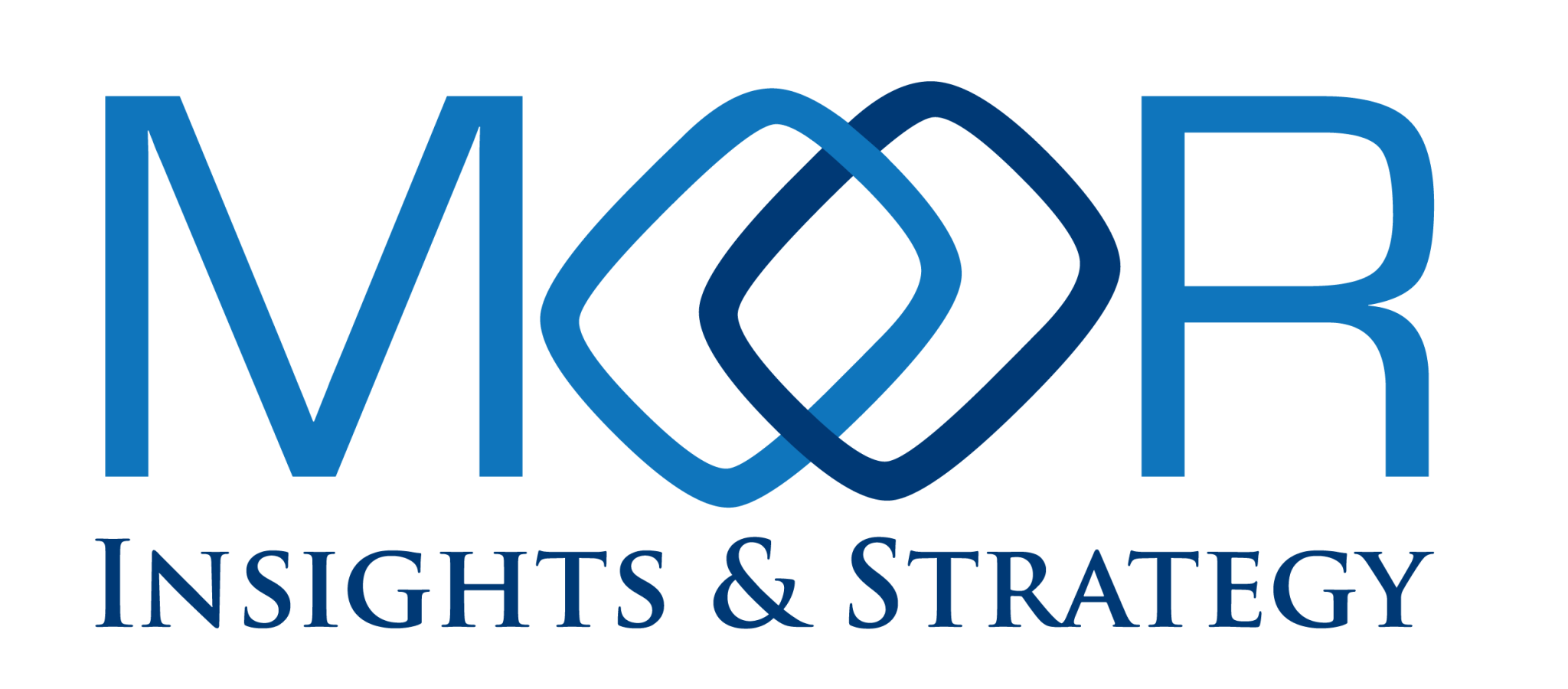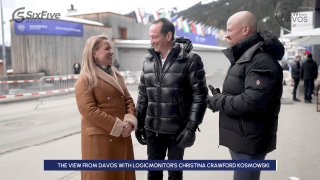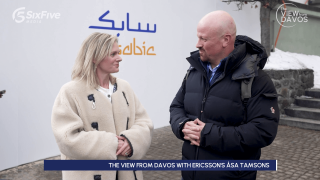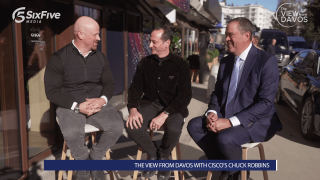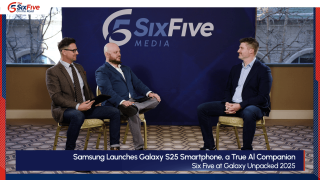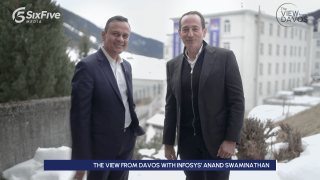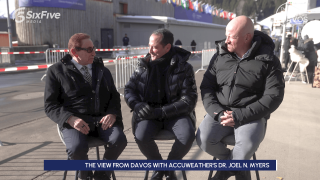There’s no question – AI is top of mind for businesses and governments alike and the focus is shifting from infrastructure to implementation & value derivation. Patrick Moorhead and Daniel Newman were joined by Hewlett Packard Enterprise‘s President & CEO, Antonio Neri, last week in Davos. In their conversation, Neri emphasizes HPE’s commitment to making technology equitable and sustainable, their strategic positioning in AI,
and the role of hybrid cloud in AI applications.
Tune in as they cover 👇
- Sovereign AI initiatives by various governments
- HPE’s edge-to-cloud platform, GreenLake and partnerships with companies like NVIDIA and Juniper to deploy and scale AI solutions with ease
- Fostering a culture of experimentation and learning to unlock the full potential of AI
- Antonio Neri’s perspective on global tech trends and their impact on the enterprise sector
- The role of sustainability and ethical considerations in HPE’s corporate strategy
- Key insights into HPE’s collaboration and partnership strategies for the future
Learn more at Hewlett Packard Enterprise.
Watch the video below, and be sure to subscribe to our YouTube channel, so you never miss an episode.
Or listen to the audio here:
Disclaimer: The View From Davos is for information and entertainment purposes only. Over the course of this webcast, we may talk about companies that are publicly traded and we may even reference that fact and their equity share price, but please do not take anything that we say as a recommendation about what you should do with your investment dollars. We are not investment advisors, and we ask that you do not treat us as such.
Transcript:
Patrick Moorhead: The Six Five On the Road with a View from Davos. We are having great conversations here. World Economic Forum is really a unique event, a melding of technology, governments, regulation, a lot of discussion about sustainability. And of course, I think at least for us, the headliner here has been about AI.
Daniel Newman: Yeah, we knew that coming here, this was going to be sort of an inflection year. A lot of the research that we are all doing on our side of the house is looking at, okay, we’ve had these kinds of infrastructure boons over the last couple of years, but now we’ve got to figure out how to implement this stuff. Start to derive value. How do governments get value? Enterprises get value? And then of course in Davos here you’re going to have that challenge of how do we keep building AI at the scale and address the energy needs?
Patrick Moorhead: That’s right. It is definitely a balance. I mean engineering and a lot of engineering to go in there and get the right balance to deliver that enterprise value for AI. So I’d like to bring in Antonio Neri. Great to see you again. Welcome back to The Six Five.
Antonio Neri: Yeah, thank you for having me. Welcome to Davos, an amazing place in an interesting time.
Patrick Moorhead: It is an amazing place, and HPE is, multinational provider to businesses, but a lot of governments. You guys coined “edge to cloud,” and you were right. And now I think the industry believes that hybrid AI is the way to go, but more importantly, generally what do you like to achieve in the show? What are your objectives here?
Antonio Neri: Well, as always, it is a good opportunity to check in every 12 months coming here, and meet our customers. Pretty much all of them are here. And also, key government officials to understand their agendas, their objectives. And as you said, AI is top-of-agenda for all governments because they have to control the destiny with this amazing technology. So for me, it’s an opportunity to connect with everyone in one place, over a three days period. So logistically it makes it very, very easy, but also to tell our story. And HPE has a unique point of view when it comes down to some of these technologies and what they can do for business, but also for society. And I think people are realizing that companies like HPE, who has been investing over the years in hybrid cloud in AI at scale, in networking, in making sure these technologies, equitable, accessible, inclusive, and sustainable. These are messages that resonate here.
Patrick Moorhead: Makes sense.
Daniel Newman: Yeah. Antonio, it feels good to be right occasionally, and I think both of us can say we really did see what you were doing early on with GreenLake. We both were believers. And I still really do believe, I actually think as companies are starting to see the cost of doing AI, you heard me in the beginning talking about deriving value. I mean, you seem to be in such a good position right now between what you’re doing on the compute side, your partnership with NVIDIA, the Juniper deal, and now the networking scale that you’re able to offer. How is it coming together? Because all this infrastructure investment has to start to bear fruit. I imagine a lot of the conversations you’re having here about that.
Antonio Neri: Yeah, I think you guys have been great advocates of what we’ve been doing, but also be able to tell it in a way that people understand both from a business and a technology perspective. And takes a unique set of skills, because sometimes you can be very technology-oriented or very high level and then people don’t connect the dots. But I will say, our strategy has been consistent and curated over the almost seven years of being as a CEO. And each component is a building block for the next one. And when I think about preparing us for this moment, we said seven years ago, the enterprise in the future will be edge-centric, cloud enable and data-driven. That gives us the vision to build an edge-to-cloud experience and architecture underneath. And that starts with the networking. And we start the first at the edge with the campus and branch and IoT and private IG. And we were very successful with that.
But now with the Juniper, we complement that to the cloud and inclusive of the service providers. And I believe that’s the core foundation of what Hewlett Packard will look like once the transaction closes. That’s the core tenant by which you can deliver these hybrid experiences, whether it’s cloud or AI. You need hybrid cloud to deliver hybrid AI. And that’s true particularly for enterprises which have data everywhere. But then when you go to the AI, it’s not created equal, right? So you have people that are racing to build these models at massive scale, although we are moving to where are more a mix of experts and more agentic type of approaches to stitch together the best model, to deliver the best outcome for a specific task for a workflow. That’s true for enterprise. But these companies are in the business to build these models and they need enormous amount of computational power. And for them it’s all about cost, scalability, and sustainability. And HP has unique point of view when it comes down to that, because we are the market leader in supercomputing. And we have shown the last 18 months some of the amazing systems including 10 days ago with the El Capitan and really the largest supercomputer ever built.
But then when you go to enterprise as a different story, and you guys understand that it is all about simplicity of Deployment and adoption. And that’s where the partnership model is important. But our technology and our platform, GreenLake is a core tenant of that. And now we have more than 40,000 customers to give us the ability to allow them to go from whether it’s the poor networking or just cloud and hybrid cloud, to going through AI. And that’s why we conceive our offer to be so simple in three clicks and less than 30 seconds to deploy.
Patrick Moorhead: Yeah. I’ve had a lot of conversations here about sovereign AI clouds, and you have the easy button where it can be a full stack of HPE, you can mix and match with your partner, particularly on the software side. Question, there’s been a lot of action obviously in hyperscaler, the training of it. What’s your sense from the conversations here, but also for the last couple of months on the timing of, let’s say the surge of government AI and enterprise AI? I mean, it’s starting, the curve is swift, but it’s still a little bit in its infancy.
Antonio Neri: It is, but in fact, after this interview, I’m going to meet a few governments that are thinking about deploying sovereign AI clouds and-
Daniel Newman: We’re just warming you up.
Antonio Neri: Yeah. Thank you. But again, when I think about AI, think about the segmentation of AI, there is three key segments in my mind. There is the model builders and the hyperscalers and the service providers alike. That they are in the business to either build a model, train the model, or provide large infrastructure for people to do their own experimentation, or in some cases just to inferencing. And that’s, think about in that space, maybe 10, 20 customers, large CAPEX deployments and the tens of billions dollars, they soon will be consuming million GPUs. They already are in the tens of thousands, in some cases, hundreds of thousands. And that’s what a lot of the action is today because there is the race to continue to make this model better and more accurate. And then obviously there is a proliferation of these models, like we said before.
Then you have the service providers that either are there to fulfill a need with enterprises on co-locations and hosting, or some of them to provide capacity to do this model builders because they have enough. But also, many of them actually are in the business to provide a sovereign cloud. However, the second segment is this sovereign AI, and I think there are 15 countries that are taking the lead. Obviously United States is one. In Europe, think about UK, France, Germany. In the last six months, we have seen more action there. Last week we opened the HLRS system in Munich. We are building the UK Bristol, which is the UK AI cloud. We are building the Japan AIST for Japan. And then, now, Middle East is very active, both the Saudi and the UAE. And obviously we’re talking here with both of them, including the G-42 entity with a lot of CAPEX available and energy available, which is very important.
So I think they are about three different curves, one very steep, both consumption and speed. The other one is ramping up fast. And then you have the enterprise, by the way, on the sovereign, it will be tens of thousands GPUs at the time deployments. But when you go to enterprise, there will be hundreds of thousands of customers, but they deployed very small, maybe hundreds of GPUs. Because they’re in the business, do a racking or just a fine-tuning. And that’s where I’m very excited because, over time, that’s where the value is. You talked about early on, it’s all great, but in the end it has to deliver value whether it’s productivity or differentiation. And I believe that’s where ultimately we will achieve the full potential. And then with governments, obviously to make sure they address the needs culturally in the geo, and then fundamentally to provide better services to their citizens.
Daniel Newman: Makes sense. So Antonio, just a couple of minutes left here. It’s an exciting day. We’re actually launching the largest CEO research panel of its kind about AI. We talked to 213 CEOs that run companies over a billion of revenue. And we asked them about AI. You’ve always been very culture-driven in your company. One of the interesting findings was 80% of companies where CEOs are driving the AI initiatives are getting less value than they are when they actually properly… I guess I’m just kind of curious of what kind of advice do you give, given that you’re involved with so many enterprises, so many governments, what kind advice are you giving to the market about success with AI now that you’re really getting into the meat of seeing these companies being able to deliver?
Antonio Neri: Well, first of all, you have to be on the loop as soon as you can, because otherwise you’re going to be left behind. Secondly, you have to have a culture of fail fast and improve. The reality, you’re not going to figure all this out immediately. You’re going to have some quick wins and a lot of failures, but the failures are important to learn and then improve the next cycle. And you have to have this culture of iterative, until we get the right balance of doing the right thing, which obviously responsibility, inclusion, and all those core values are important, with the business results. And I think about AI, it’s less about the technologies, more about the business, and everybody plays a role in the entire enterprise. In our case, we have a group of people that drive the student team for us. We have more than 250 cases that we go through the process. Some of them are already in full production, some of them are in ideation. Some already failed and said, okay, forget it. Move on.
And so I think that’s what you have to establish. And I think that’s an opportunity in my mind for every enterprise, to rethink the culture of the company because it’s not the technology, it’s how you do business going forward. And I think this technology allows you to really take a step back, reimagine your enterprise using this technology in the ways that we haven’t imagined before. But again, if you don’t get on that train, you are going to be left behind. And that’s a problem, right? Because we saw that when people went through the Covid, those who were ahead on the digital transformation and they had digital processes in place, they were able to move quickly in adopting whatever they needed to be done, working from home or engaging customers in digital interactions. And that’s what’s going to happen here. AI is going to drive a lot of those interactions on that digital platform.
Daniel Newman: Antonio, great insights, as always. Thanks so much for spending a little time with The Six Five with Pat and I here. Appreciate your friendship and we appreciate all the work that you’re doing at HPE.
Antonio Neri: And thank you for coming here and covering the event. I think you bring a unique point of view and trying to make it simple for people to understand-
Patrick Moorhead: Thank you.
Antonio Neri: … What happens here, sometimes they think this is a big political thing, actually, is way more than that, I think is the intersection of social issues with technology and governmental agendas. Ultimately, when the right focus is in place, a lot of things can happen.
Daniel Newman: And public partnership. Thank you everybody so much for joining The Six Five On the Road with a View from Davos. Hit Subscribe. Join us for all of the content here on the ground at Davos 2025, the World Economic Forum. Patrick, you gotta say goodbye now.
Patrick Moorhead: See you later.
